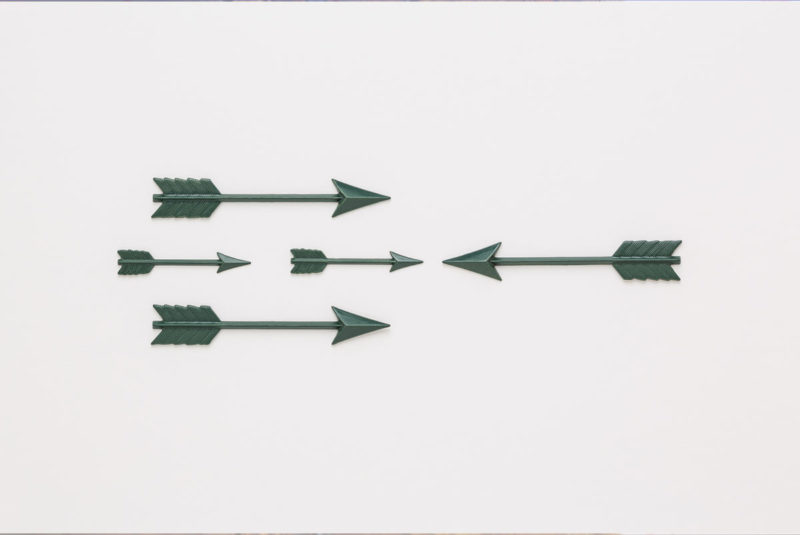Ready To Buy a Home?
Get Approved to Buy a Home
Rocket Mortgage® lets you get to house hunting sooner.
If you’re a recent medical school graduate, you may have heard of physician mortgage loans, also known as doctor loans. Considering the student debt that usually comes with medical school, it’s natural to look into all of your mortgage options.
Learn everything you need to know about physician mortgage loans, how they work, how to apply for one and what kind of rates and terms to expect.
What Is a Physician Mortgage Loan?
As the name implies, physician mortgage loans are meant for doctors who’ve either just graduated – and may not have proof of employment yet – and newer physicians.
With high medical school debt and possibly no immediate income, newer doctors have a way to qualify for mortgages without having to put down thousands of dollars upfront.
Home is worth it.
The mortgage process can be exciting, and we’ll be with you all the way. Take the first step to owning a home. You’ll be glad you did.
How Do Physician Mortgage Loans Work?
Doctor loans work differently than conventional home loans. A physician mortgage loan is a type of mortgage that, in most cases, doesn’t require a down payment. There are degree requirements, lower loan qualifications and potentially higher interest rates for doctor loans than conventional mortgages.
Like traditional mortgages, exact costs vary by provider. However, $1 million is the industry standard for how much doctors can borrow without a down payment. Properties with a higher purchase price may require a down payment – even if you’re using a physician mortgage loan.
Interest rates
Most doctor loans are adjustable-rate mortgages (ARM), which means they tend to have lower interest rates at the beginning of the loan. The interest rate can change over time based on market conditions and your personal credit.
With physician mortgage loans, the rate tends to increase over time. But this isn’t always the case.
Your lender can’t increase your interest rates without limitations. There are various caps on adjustable rates to ensure lenders don’t use these mortgages to take advantage of borrowers.1
Private mortgage insurance (PMI)
If you take out a traditional conventional mortgage and make a down payment of less than 20% of the loan, your lender will usually require you to get private mortgage insurance (PMI).
The cost of PMI is added to your monthly payments and varies based on the size of the loan.
However, if you get a physician mortgage loan, you can put down less than 20% – even 0% – and you still won’t owe PMI. This can make a noticeable difference to your monthly payment.
Property requirements
Doctor loans have strict property requirements compared to traditional mortgages. Most notably, you can only use a physician mortgage loan to buy a primary residence. In other words, you can’t get a doctor loan to pay for a second home or investment property.
Additionally, your lender may put restrictions on the type of property you can buy with the loan. Many doctor loans won’t allow you to buy condos, townhomes or multifamily properties.
You’ll need to check with your lender to see what types of properties are accepted.
Who Qualifies for Physician Mortgage Loans?
Contrary to popular belief, doctor loans aren’t just for doctors and other medical professionals. They’re available to a wide range of high-earning professions, including but not limited to:
- Doctors
- Dentists
- Podiatrists
- Veterinarians
- Optometrists
- Certified Public Accountants
- Attorneys
- Advanced Practice Clinicians
Keep in mind that not all lenders offer doctor loans to home buyers who work outside of the medical field. They’re generally reserved for medical professionals only. However, if you have the right credentials, you could find a lender that will accept your application.
Qualification requirements
Qualification Requirements
You’ll need to show proof of an advanced degree in a qualifying field of study, including but not limited to Doctor of Medicine (MD), Doctor of Osteopathic Medicine (DO), Doctor of Veterinary Medicine (DVM), Doctor of Dental Surgery (DDS) and Doctor of Medicine in Dentistry (DMD). Remember that eligibility requirements, including accepted professions and degrees, vary from one lender to another.
If you’re right out of med school, you can generally qualify for a doctor loan without proof of employment or income. If you’ve been out of school for more than a year, your lender will likely want to see that you have some way to make your mortgage payments.
You’ll need to show how much debt you have in comparison to your current income, aka your DTI ratio. Fortunately, even if you have a lot of medical school debt and little or no income, many lenders will still accept your application. Doctor loans don’t automatically disqualify borrowers with high student loan debt.
Credit requirements vary significantly by lender. As a general rule, 620 is the lowest score you can have to qualify for a non-government-backed mortgage. The same rule applies to doctor loans. However, if you don’t plan to make a down payment, your lender may require a credit score of 680 or above.
Pros and Cons of Physician Mortgage Loans
Below are some important pros and cons of doctor loans to help you decide if they’re the right choice for you:
PROS of physician mortgage loans👍
You won’t have to add extra insurance costs to your monthly mortgage payment, even if you’re paying less than 20% of the loan upfront.
A doctor loan ensures you can still get into a home, even if you don’t have enough cash to make a down payment.
With a physician mortgage loan, it’s understood that recent med school grads likely have a lot of student debt and little to no income.
Getting a loan limit of $1 million without a down payment or proof of income isn’t something you can do with a conventional mortgage.
CONS of physician mortgage loans👎
Your interest rates will fluctuate and potentially increase over time, making it harder to plan for your financial future.
Even though your adjusted rate will start lower, you’ll probably end up paying more in interest with a doctor loan than with a traditional conventional mortgage.
Both you and the lender are taking on more risk with a doctor loan. The assumption is that you’ll find employment. But if that doesn’t happen quickly enough, you could find yourself drowning in debt.
You can only get a physician mortgage loan for a primary residence, and your lender may put additional limitations on the type of property you can purchase.
Alternatives to Physician Mortgage Loans
If you decide a physician mortgage loan isn’t the best choice for you, there are other loan options.
- Federal Housing Administration (FHA) loan: An FHA loan is a government-backed mortgage that helps people with lower credit scores or limited savings get access to home financing.
- Conventional loan: Most conventional mortgages require you to have good credit and a steady income. The upside is you can get virtually any kind of property with a conventional loan – second home, investment property, etc.
- Department of Veterans Affairs (VA) loan: If you’re a military veteran or a current member of the military, you may qualify for a VA loan. This type of loan gives veterans and military families access to mortgages with no down payments.
Doctor Up Home Buying With A Physician Mortgage Loan
If you’re a recent med school grad with student loan debt, a physician mortgage loan is one of the best home financing options on the market.
In some cases, it may be the only way for new doctors to become homeowners right now. Just remember to weigh all of your options to see if a physician mortgage loan makes sense for you.
Need Mortgage Help?
New home, second home, refinancing, we’ve seen it all. Whatever your goals, expert help is just a click away.
The Short Version
- Physician mortgage loans are meant for doctors who’ve either just graduated – and may not have proof of employment yet – and newer physicians
- These loans come with no down payment requirement and limits up to $1 million dollars, higher than you’ll get with a conventional loan
- Most doctor loans are adjustable-rate mortgages (ARM), which means they tend to have lower interest rates at the beginning of the loan




